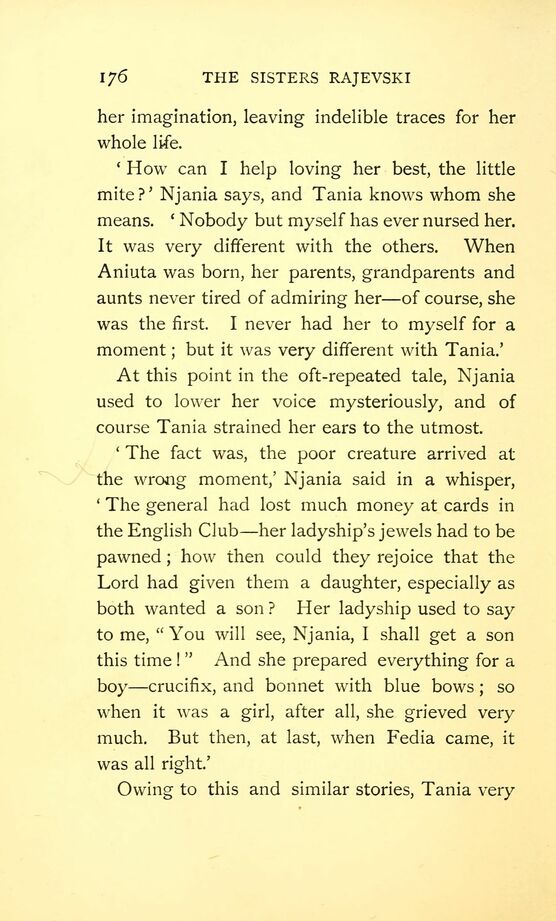Note: Translator Louise von Cossel is or might still be alive. Therefore, this work is protected by copyright, restricting your legal rights to reproduce it. However, you are welcome to view it on screen, as you do now. Read more about copyright.
Full resolution (JPEG) - On this page / på denna sida - Sidor ...

<< prev. page << föreg. sida << >> nästa sida >> next page >>
Below is the raw OCR text
from the above scanned image.
Do you see an error? Proofread the page now!
Här nedan syns maskintolkade texten från faksimilbilden ovan.
Ser du något fel? Korrekturläs sidan nu!
This page has been proofread at least once.
(diff)
(history)
Denna sida har korrekturlästs minst en gång.
(skillnad)
(historik)
her imagination, leaving indelible traces for her
whole life.
‘How can I help loving her best, the little
mite?’ Njania says, and Tania knows whom she
means. ‘Nobody but myself has ever nursed her.
It was very different with the others. When
Aniuta was born, her parents, grandparents and
aunts never tired of admiring her—of course, she
was the first. I never had her to myself for a
moment; but it was very different with Tania.’
At this point in the oft-repeated tale, Njania
used to lower her voice mysteriously, and of
course Tania strained her ears to the utmost.
‘The fact was, the poor creature arrived at
the wrong moment,’ Njania said in a whisper,
‘The general had lost much money at cards in
the English Club—her ladyship’s jewels had to be
pawned; how then could they rejoice that the
Lord had given them a daughter, especially as
both wanted a son? Her ladyship used to say
to me, “You will see, Njania, I shall get a son
this time!” And she prepared everything for a
boy—crucifix, and bonnet with blue bows; so
when it was a girl, after all, she grieved very
much. But then, at last, when Fedia came, it
was all right.’
Owing to this and similar stories, Tania very
<< prev. page << föreg. sida << >> nästa sida >> next page >>